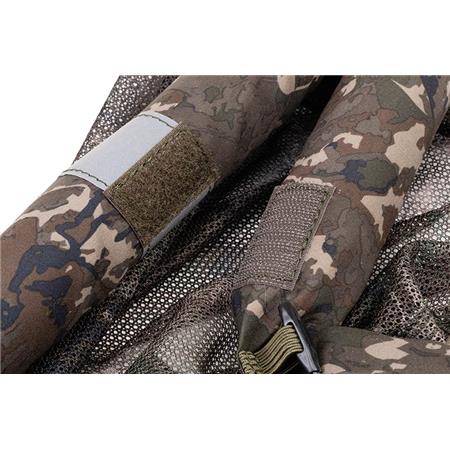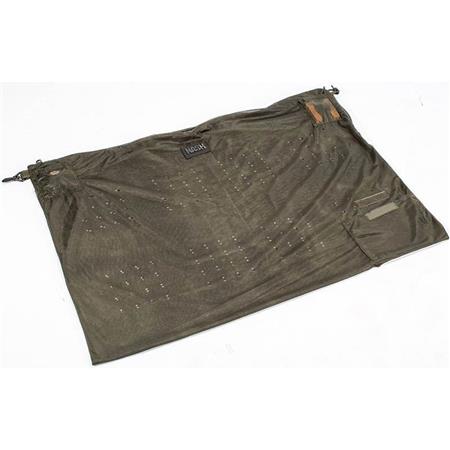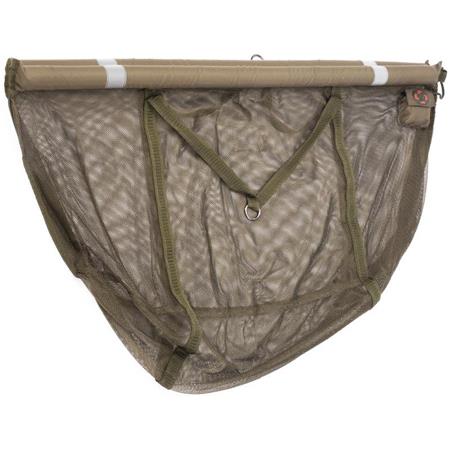The retention slings are mainly used for carp fishing, to keep a fish in the water, and release it later. The reason for doing this is primarily to take a photo with the beautiful daylight following a night catch. But the fish being in full shape, this requires multiple precautions not to damage the carps, you have to pull a few minutes on the rope while leaving the fish in the water, normally, it will get irritated and tire a bit. Then, you need to take the fish out with both hands avoiding at all costs that the tail is stretched against the canvas, and checking that the fins are along the body and do not lean on the bag. Then, you will have to hold the fish well to limit its movements, and immediately open the bag to at least free the fish's tail, very fragile. You also need to take precautions when placing the bag in the water, you need sufficient depth, no sharp branches or rocks nearby, and above all secure it well, to have no risk of detachment, or even double fixation to be sure. Finally, in recent years, floating retention slings have been developed. They have the advantage of also being a weighing bag, thus limiting the handling of the fish, especially if you directly open this retention sling on your
carp receiving mat, you put down the carp, remove the
carp landing net, do the
weighing and then, you close everything and put the bag in the water if you wish to keep it for a while. As they are generally large, the risk of breaking the tail and fins is less, however, as it is floating, it is absolutely to be avoided in the middle of winter or summer, as the fish will have no possibility of going to a depth with a comfortable temperature. Finally, note that in some private lakes, and at night on the French public domain, the use of retention slings is prohibited, particularly to limit the illegal movements of live fish, you will have to take your photos at night. Retention slings can also be found by their English name "retention sling", under the most well-known brands: Trakker, Nash, Carp Spirit and
Fox.


